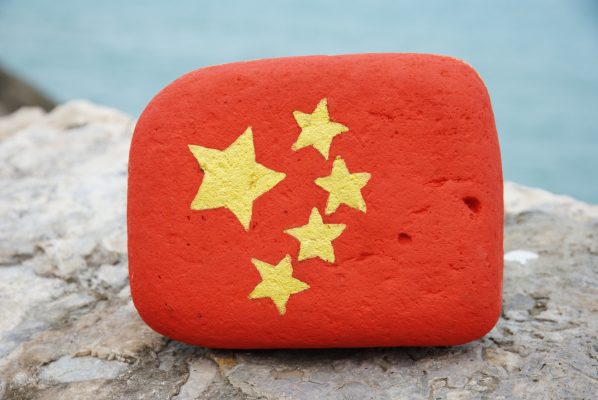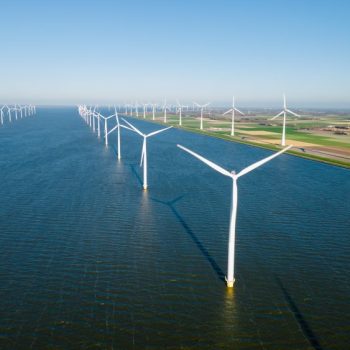
In 2016, policy-relevant opinion in China favored Donald Trump’s election. In an overly simplistic and partisan assessment, and echoing claims by Trump himself, United States National Counterintelligence and Security Center (NCSC) Director William Evanina claimed in August that Beijing supports Joe Biden in the 2020 presidential election. If true, that would be a second consecutive departure from China’s usual preference for continuity in the president or party in power in the United States. Chinese views on the U.S. 2020 presidential contest are not so black and white—or red or blue.
Officially, China insists that it has no stake or allegiance in the U.S. presidential contest. Some prominent Chinese assessments (including by the editor of a major Chinese Communist Party-linked paper, and the former lead negotiator for China’s World Trade Organization entry) are more willing to opine that a second Trump term would be better for China. Some Chinese foreign policy experts mirror the U.S. NCSC view, suggesting that Biden is preferable for China because he is less unpredictable and the conduct of bilateral relations will be correspondingly smoother. The variety and overall ambivalence of “Chinese” views about 2020 reflect China’s experience with four years of Trump, ongoing changes in the U.S.’s and China’s international clout and agendas, and Chinese expectations about how—and how much—a Biden administration would change the troubled trajectory of U.S.-China relations and U.S. policies toward China.
Some Caveats
In 2020, it remains the case that there is no single “Chinese” view of Donald Trump, nor is there consensus on why a second Trump term or a Biden presidency is more desirable. Views vary among China’s far-from-homogenous political elites and foreign policy intellectuals, as well as more ordinary citizens. Our evidence of Chinese attitudes and evaluations remains limited and unsystematic. It comes from several imperfect sources: statements from officials and in party-state-linked media (which can be strategic and disingenuous); commentaries by expert analysts (who are relatively few in number, diverse in views, and aware of political limits on what they can safely say and publish); conversations with U.S. observers’ own Chinese contacts (who are often candid, but who skew toward the liberal end of China’s foreign policy spectrum and who have in many cases grown more circumspect as U.S.-China relations have soured, the political climate in China has chilled, and opportunities for face-to-face informal meetings have fallen sharply amid corona virus-induced limits on travel); and glimpses of public opinion (from small numbers of questionable polls, highly anecdotal journalistic accounts, or the often-strident and surely not representative views expressed by China’s online netizens).
And, of course, the impact of any opinions—at least outside of those at the top levels of leadership—on a state’s policies relating to external affairs is highly uneven and usually uncertain. The link between elite or public preferences and foreign policy is complicated and limited most of the time in most political systems. It is all the more so in centralized authoritarian regimes such as China’s, with their typically opaque and often centralized policy processes. The pattern has become even more pronounced in U.S.-China relations in recent years, as: Xi Jinping has gathered more power into ad hoc small leadership groups and his own hands, reportedly reducing the influence of foreign policy experts and professionals; the Trump administration has made broadly similar changes and adopted a more fragmented, transactional approach to international relations; and rising tensions and escalating mutual demonization (not least in the context of responses to the coronavirus pandemic) have made issues in bilateral relations more likely to draw attention from the top leadership in both countries.
At the same time, some long-standing lodestars for China’s approach to U.S. elections have dimmed. China’s leaders long have enjoyed robust autonomy in choosing stances on such matters, free to follow their often-predictable assessments of China’s international interests. While foreign policymaking remains relatively well-insulated from the public’s preferences, the Xi years—partly through the regime’s own efforts—have brought a surge in increasingly strident and often anti-American nationalism that leaders cannot summarily disregard. The once-venerable nostrum that Beijing usually favors continuity in the party in power in Washington has been no better than questionable in all but one U.S. presidential election since 2004—a change that manifests a decline in the long-dominant post-1979 view that U.S.-China relations were basically positive and potentially constructive. In U.S. election cycles when the two major-party candidates have taken sharply different views on China policy, policy-relevant opinion in China often has discerned obvious reasons to prefer the candidate promising a more accommodating or cooperative policy—which usually has been the candidate of the party in power, rather than the opposition candidate who challenges the incumbent administration for having been “too soft on China.” But that dynamic, too, has waned, with: two consecutive U.S. presidential contests in which both nominees have promised a tougher approach to China; and China’s America-watchers having learned, over the several preceding decades, that the anti-China rhetoric of the campaign trail often cools amid the high stakes and intricate tasks of managing the world’s most important bilateral relationship.
2016 in Retrospect: W(h)ither Red State China?
Reasons for the overall Chinese preference for Trump in his first bid for the presidency were diverse and, in some respects, contradictory. As I attempted to summarize them four years ago, they included several clusters of assessments or expectations:
- as a former businessman, Trump would prioritize the economic relationship over other, more intractably contentious issues, and likely would forego the threatened trade war;
- as the self-proclaimed artist of the deal, Trump would eschew hectoring China over matters of principle in favor of pragmatic, transactional deal-making—in which China might often get the better of the bargains with the overly self-impressed and inexperienced U.S. leader;
- as a man of seemingly few deeply held policy beliefs at the head of an establishment political party and a vast government apparatus, Trump ultimately would be tamed by those who understood and endorsed relatively conventional approaches to U.S. China policy;
- as an unconventional neophyte politician who captured the supposedly formidable Republican Party, appealed to voters with a platform that trampled the liberal political values that U.S. government policies and non-governmental organizations invoked to chastise or change China, and caustically indicted American policy failures at home and abroad, Trump would herald a long-desired (in China) comeuppance of American arrogance;
- as a self-styled populist strongman, Trump was less likely to attack China’s authoritarian politics (while also offering a critique of out-of-touch elites that resonated with the views some Chinese had of their own politics and society), and was, at least, a familiar political type for both elite and mass Chinese audiences;
- as a proponent of an “America First” foreign policy and a skeptic of U.S. alliances, Trump would be more isolationist, retrenching U.S. commitments abroad that could frustrate China’s agendas;
- as a reckless attacker of long-successful status quos at home and abroad, Trump likely would hasten the U.S.’s (relative) decline and China’s concomitant rise;
- as an agent of change whose stated aims included much that was against China’s interests, Trump might be, nonetheless, a source of creative destruction in an increasingly fraught bilateral relationship that seemed to be trending sharply and ineluctably downward;
- as the “not Hillary” candidate, Trump at least did not come with a history of “anti-China” views that portended policies toward China much tougher than those of Obama and his recent predecessors.
“(Re)Playing the Trump Card” or “Biden, It’s Time”?
Four years later, some of these perspectives have persisted. Some have been disappointed. Others have transformed. And new considerations have been added to the mix of factors driving Chinese views on the Trump-Biden contest. Overall, there is much less of a sense in 2020 that Trump is a good—or the better—outcome for China, but there also is no consensus in favor of Biden, much less that Biden would be as beneficial for China’s aims and interests as Trump had been expected to be when Chinese observers assessed the 2016 U.S. election.
For the Janus-faced pair of expectations that conventional U.S. China policymaking would constraint and steer Trump, or that Trump would be “change agent” triggering “creative destruction” in a bilateral relationship with much downward momentum, the post-2016 reality has been mostly—but not entirely—unkind. Although the unconventional and disruptive elements of Trump-era U.S. China policy get much of the attention in China (as in the United States), there has been, as some Chinese observers have recognized, a fair amount of normalcy and continuity, even on contentious issues. Many of the issues on the U.S.’s economics and trade agenda, Washington’s use of freedom of navigation operations and other measures to push back against China’s expanding reach in maritime East Asia, critical statements and policy measures targeting China’s human rights abuses, and much else have been within the range of what Chinese experts would have expected from a typical U.S. administration.
But much of the relative normalcy has been the product not of traditional or establishment influences on policymaking (as some Chinese observers had expected in 2016), but, rather, of limited follow-through on radically disruptive initiatives—ones that have been far from the creative type of destruction envisioned in some Chinese assessments of a prospective Trump presidency in 2016. It has been evident to observers and analysts in China that the Trump administration has been all over the map with positions that have not been imaginable as part of U.S. China policy in recent decades, from the president’s high praise for Xi Jinping and his authoritarian style of governance, and claims that the two leaders have a great relationship, to charges by Trump and senior administration officials that China is responsible for unleashing the COVID-19 global pandemic, and pursuing a whole-of-government and whole-of-society attack on the United States and American interests, and more.
Particularly disconcerting for policy intellectuals, who remain a significant group shaping Chinese views on U.S. elections and Washington’s China policy, was the Trump administration’s unprecedented characterization of Chinese scholars and students as spies and agents of anti-U.S. conspiracies—a stance that led to visa denials and revocations, searches, interrogations, and indictments by the U.S. government (including through the Department of Justice’s “China Initiative”), the disruption of long-mutually-beneficial channels of communication, and a sharp rise in anti-U.S. sentiments among once-sympathetic constituencies in China.
Against this background, the prospect of a Biden presidency promised to Chinese observers a welcome return to more ordinary approaches in Washington’s China policymaking. Among policy analysts in China who watch U.S. developments closely, there was hope to be found in reports that Biden’s foreign policy and China policy teams would include familiar faces from prior administrations and establishment Washington think tanks. The appeal of getting past the disruption and destruction of Trump policies does not, however, rest on predictions that a Biden administration would mean a return to the relatively benign (from China’s perspective) policies of the 1990s and 2000s. The expectation, rather, is a subsidence of the volatility and chaos, and an increase in the ability to engage more stably and less destructively, despite an overall more tough-on-China U.S. policy, particularly in the relatively limited areas of compatible agendas.
On the economic front, some of the optimistic Chinese expectations of 2016 have been validated, making a second Trump quadrennium a partly appealing prospect. Some Chinese assessments (paralleling American critics’ views) saw Trump’s much-touted “Phase One” trade deal as an example of China buying some peace in the trade war at no significant cost. On this view, China achieved a reduction in recently imposed tariffs and a significant deferral of pressure on issues that matter for China in return for modest and in some respects not very firm or reliably enforceable commitments to purchase more U.S. exports, strengthen protection of U.S. intellectual property rights, increase U.S. firms’ access to financial services markets, and refrain from some forms of currency manipulation. Some of China’s commitments were consistent with China’s own interests and agendas, and others restored aspects of the trade war status quo ante. The Trump administration’s disdain for the WTO and crippling of its dispute resolution process (by blocking the appointment of a quorum of members of the WTO’s appellate body), and its anemic policy responses to China’s Belt and Road Initiative (BRI), generated confidence in China that a continued Trump presidency likely would continue to forego ambitious and multilateral efforts to limit China’s pursuit of its high-priority international economic agendas.
During Trump’s first term, observers in China (as in the United States) noted Trump’s odd emphasis on issues—such as the bilateral trade deficit and exports of relatively low-value-added goods—that were less significant U.S. interests, and would require less painful changes by China, than would a focus on what should be higher priority U.S. goals—such as changes to China’s industrial policy, subsidies to favored firms and state-owned enterprises, and illicit or problematic modes of technology acquisition. A possible Biden presidency raised concerns that policies that would be more challenging to China on these fronts, or more determined in pursuing elements of the existing U.S. agenda. Some Chinese expert analysts, for example, foresaw Biden emphasizing issues of intellectual property and technology protection, protecting U.S. middle class jobs, and supply chain security.
On the other hand, four years of Trump had given important Chinese constituencies reasons to favor change. The instability and inconsistency of Trump-era U.S. economic policy toward China was widely recognized as a headache for China’s policymakers and negotiators, leaving them wondering which was the relevant U.S. position among the varied ones issuing forth from Treasury Secretary Steven Mnuchin (relatively moderate), Trade Representative Robert Lighthizer (harder line but in a relatively conventional way), or White House Advisor Peter Navarro (an advocate of radical decoupling), or the president himself. There was reportedly much frustration over the resulting uncertainty, the inability at times to have a clear sense of U.S. priorities, and concerns that deals, once struck, were too likely to fall apart or to be followed by new demands. Although a second Trump term was not seen as posing a great threat of full-fledged decoupling, even a low probability of such a disruptive development was disconcerting in China (although some saw it as more likely and leading to a conflict that China should prepare to win).
In addition, Trump administration moves against major Chinese tech companies, including Huawei, ZTE, and the companies responsible for TikTok, and WeChat, made the idea of a continuation of the Trump administration disconcerting. The impact on these important and influential Chinese businesses was, at least, disruptive and threatened to be devastating. The political salience was evident in the attention and intervention the tech war drew from China’s top leadership. It was greater still because the economic concerns were entwined with sensitive issues of Chinese national pride and U.S. national security (particularly after the Trump administration sought the arrest and extradition from Canada of top Huawei official Meng Wanzhou on charges related to violations of U.S. sanctions on Iran and North Korea, and alleged that internationally popular Chinese social media apps and 5G hardware were tools for espionage or sabotage).
On “values” issues, hopes in China that Trump would downplay a chronic point of contention in bilateral relations were at times disappointed, but largely realized at a more consequential level. True, the mass incarceration and severe human rights violations in Xinjiang and the repressive National Security Law that Beijing adopted for Hong Kong drew sharp rebukes from the Trump administration, with backing from Congress and the threat of some narrow sanctions. Other administration officials, including Secretary of State Mike Pompeo and Vice President Mike Pence, pointedly targeted issues of religious freedom in China and folded human rights-resonant concerns into efforts to draw a distinction in U.S. policy between a reviled Chinese Communist Party and the Chinese people. But a common view in China was that the Trump administration’s commitments were shallow—a suspicion confirmed by former National Security Advisor John Bolton—whose account is read attentively by China’s America analysts—that the president cared little for such issues and would make trade-offs for gains on other issues, especially if Trump would reap domestic political gains. The sense that the Trump administration’s purported interest in questions of China’s human rights was weak was reinforced by Trump’s own erratic statements—seen as acquiescing in, or endorsing, China’s moves in Xinjiang and Hong Kong—and by the U.S.’s self-isolating exit from the United Nations Human Rights Council (UNHRC).
Chinese observers expect that a Biden administration would return to traditional, especially Democratic administration, approaches to human rights in China, making them a more significant part of U.S. policy, using more sophisticated measures, cooperating with allies, and causing more trouble for the Chinese regime. But China’s foreign policy analysts and experts have learned over the years—including during the Obama-Biden administration—that Washington’s policies on China’s human rights rarely rise so high on the American agenda that they significantly roil the broader relationship (even when the broader relationship is generally worsening). Moreover, Chinese observers have noted the Trump-era erosion of the U.S.’s international credibility and clout on human rights issues, which should further reduce expectations that a Biden administration reemphasis on human rights would pose a significant problem for China.
The most striking values-related developments during Trump’s first term were not a major factor in Chinese perspectives on the 2016 election but have given China—and especially more hawkish and nationalist elements—reasons to be relatively sanguine about a second Trump term. The Trump administration’s virulent attacks on China, writ large, and the domestic chaos sown in the United States during the Trump presidency have produced a huge win for the Chinese regime at home, and strengthened China’s hand abroad. The Trump administration thus made it easy for Chinese officials and media to portray the U.S. as profoundly hostile to China, responsible for many of the problems facing China, unable to maintain social order or cope with the COVID-19 pandemic or conduct a free, fair, and orderly election at home, and indifferent to climate change and other pressing issues abroad. Hu Xijin, the often-provocative editor of the Global Times, snarkily thanked Donald Trump for strengthening China’s solidarity and cohesion, offering crucial help to China’s rise, and giving good reason for Chinese to urge Americans to reelect Trump. Even for less cheeky analyses, four years of Trump had brought—and four more years could be expected to bring more—that would reduce the U.S.’s once-potent soft power superiority.
On the related question of the U.S.’s relative decline and retreat from alliances and international engagement, the segments of policy-relevant Chinese opinion that relished the prospect of such developments see much to like in Trump’s first term and the potential for a second term. The view that Trump indeed has presided over, and accelerated, a U.S. decline—with concomitant gains for China—is pervasive in China, reflected across a wide range of sources, including academic observers’ accounts of ordinary Chinese who believe that Trump has been a disaster for the U.S., similar assessments in pro-Beijing Hong Kong media, a Foreign Ministry statement nearly gloating that the U.S. has weakened itself and its image abroad, disparaging social media posts, and perhaps most pointedly by a nickname often applied to Trump in China: 川建国—the surname Chuan that is the first half of the usual transliteration of “Trump” followed by the personal name Jianguo, which literally means “Build the Country” (implicitly China) and which was given to many Chinese born during the post-revolutionary years of high patriotism.
Also widely noted in China is the adverse impact on the United States, and correlative opportunities for China, of the Trump-era assault on or exodus from major international institutions, and the weakening of U.S. ties with allies and friends. Much of the litany is familiar and widespread in accounts of developments and their implications for China: leaving the World Health Organization and the UNHRC, disparaging and debilitating the WTO, rejecting the Trans-Pacific Partnership, moving to exit the Paris Accords, lambasting the United Nations, and questioning the North Atlantic Treaty Organization. Such moves created openings for China to exercise greater influence in many of those institutions and to increase the stature and roles of Chinese-led initiatives such as the Regional Comprehensive Economic Partnership, the Asian Infrastructure Investment Bank, and the Belt and Road Initiative. So, too, a transactional approach to foreign policy and a skepticism toward long-standing (and, in Trump’s view, overly one-sided) security commitments are seen as eroding alignments with allied and friendly regional states (except Abe Shinzo’s Japan) that share U.S. concerns about a rising China and the threats it poses.
To the considerable extent that all of this is seen in China as favorable to China, the scenario of a Biden presidency poses something of a threat. Chinese analysts point to the prospect that Biden will be able to rebuild U.S. alliances and return the U.S. to international organizations and a more cooperative and engaged foreign policy. These concerns are tempered, however, by a sense in China that a Biden reengagement policy may prove relatively hollow—as occurred with the Trump administration’s “Free and Open Pacific” policy and the Obama-Biden administration’s “Pivot to Asia”—and by a judgment that Trump policy has dug a very big hole for Biden.
At the same time, and more basically, Chinese foreign policy circles have recognized that the U.S.’s Trump-era self-inflicted wounds have produced less-than-spectacular gains for Chinese foreign policy. Chinese analysts and policymakers are well aware that China’s rise in power and regional states’ perceptions that Beijing is increasingly aggressive have led to the pursuit of closer security ties with the U.S. to check and balance China—including among the Quad states (the U.S., Japan, India, and Australia) and by lesser and more vulnerable countries in the region. Regional states have followed this course despite the lessened interest and possibly decreased reliability of the United States under Trump.
Finally, in Chinese views of the 2020 U.S. presidential contest, there is relatively little that parallels the “not Hillary” considerations that cut in Trump’s favor in 2016. Trump-era episodic forays into human rights issues and more sustained broader vilification of China have muddied the contrast that some Chinese observers had expected in 2016. Trump was less “not Hillary” in giving China grief than many in China had expected. Joe Biden in 2020 seems to be less off-putting in China than Hillary Clinton was in 2016. Some observers point to glimpses of past indications of positive feelings by Xi toward Biden, including the Chinese leader’s 2013 reference to then-Vice President Biden as an “old friend” (a translation of the venerable and highly positive Chinese political term 老朋友 [lao pengyou]) during warm remarks at the White House on bilateral relations, or to their co-membership in the exclusive club of former vice presidents who seek or achieve the presidency of a highly consequential state. Some observers suggest that more negative attitudes toward Clinton reflected sexist tropes about female leaders that run deep in Chinese political culture.
Less speculative and anecdotal Chinese assessments of Biden are soberly resigned to the idea that Biden’s China policy will not return to the relatively halcyon days of the Obama-Biden administration (and especially its early years). Despite some strikingly harsh words (including calling Xi a “thug” at a Democratic primary debate), Biden has not been firmly tagged with the “anti-China” label that was applied to Clinton, based in large part on her tenure as Secretary of State. In significant part, though, the relative lack of alarm at Biden’s tough talk and promised tough policies may reflect the widely held Chinese view—more prominent in 2020 than in 2016—that a contentious U.S.-China relationship is now baked in, less susceptible to being made wildly better, or worse, by the nuances of differences among possible presidents’ past record or apparent predilections concerning China—at least provided that the president is more nearly “normal” than Trump.
Seeing Red and Turning Blue?
Indications of policy-relevant opinions in China about the preferable outcome of the U.S. 2020 presidential election are, thus, a good deal more complicated than what Trump administration political appointees and many pundits claim, or than they were in 2016. There are some points of relative consensus. Across an otherwise varied spectrum of opinion in China, there is a recognition that China’s relationship with the United States after 2020 is likely: to remain much more fraught than it was during most of the long period of constructive engagement that followed rapprochement and the normalization of relations; to entail more U.S. demands for China to change its statist and nationalist economic policies and increase its conformity to international rules for economic laws and policies and in other fields; to take on more clearly the attributes of great power competition—especially in Asia and the Western Pacific; and to include ideational conflict of an intensity not seen between dominant powers since the height of the Cold War. The often-expressed view in China that these broad contours are relatively fixed, regardless of who wins the U.S. presidential context, is likely right.
But there are differences that will turn on who wins the U.S. election, and they do matter. As is indicated by some of the reasons for some of the differences in Chinese perspectives on the two U.S. presidential elections in which Trump has been a candidate, China is not unchanging or entirely unmalleable.
The China that the U.S. should not want is likely to be encouraged by a Trump victory. The China that the U.S. should realistically want—not the naïve fantasy “China as we wish it were” of the rhetoric that Pompeo uses to mock less-than-fully-hardline policies—should favor a Biden presidency, not because (as Trump campaign slogans assert) “Beijing Biden” would be so “weak on China,” but because a change in U.S. presidents is the better of two unappealing choices in terms of China’s interests.
A China that wants, and gets, a second Trump term is likely to perceive—perhaps accurately—the U.S. to be in sharper decline in relative power, in credibility of commitments and moral authority abroad (most crucially in Asia, and in the multilateral institutions of a rules-based international order), and in the stability and coherence of policies that might constrain China. Hawkish attitudes and confidence bordering on arrogance are more likely to prevail in China’s policymaking. This would lead, among other things, to greater risks that Beijing will get out over its skis, pursuing assertive foreign policy aims that it is less likely to achieve (or achieve at expected, tolerable costs), and triggering heightened fears among its neighbors (and globally)—which can prompt them to hedge against or balance (rather than yield to or bandwagon with) China, and to seek closer alignment with a possibly unreliable and volatile, but still powerful and China-challenging, United States.
A China that wishes for, and receives, a continuation of the Trump administration is more likely to be embroiled in an escalating ideological battle with the United States, including mutual disparagement of—and possibly more proactive efforts to undermine—each other’s political order. This would mean greater likelihood of escalating conflict, and dimmer prospects for cooperation in areas of mutual interest—all the more so given the Trump administration’s antipathy toward international collaborative efforts (or any effort at all) to address such issues as climate change or global public health threats, and given the likely further decline of voices in Chinese policymaking that have favored a less adversarial and confrontational relationship with the United States.
Finally, and more fundamentally, Trump remaining in power—compared to the prospect of a Biden presidency—may well be bad for China, as some eminent Chinese policy scholars such as Da Wei, Jia Qingguo, and Zhu Feng have suggested, in part because of China’s persisting interest in a relatively stable, open, and institutionally robust global order. From such quite plausible perspectives, economic decoupling, a new Cold War, and more anarchic international relations—all more likely if Trump wins—are developments that would not, and should not, be welcomed by China.
To be sure, the era when China sought to join the international system and its principal institutions on the latters’ terms—as a “regime taker”—is over. China’s still-high-priority goal of economic advancement is much less dependent on U.S. and other foreign markets, capital, and cooperative provision of know-how than was the case during the early decades of China’s Reform Era. No longer plausible—or even much voiced—are Beijing’s long-familiar claims that its lexical priority in foreign policy is a stable international environment favorable to China’s economic development through market-oriented reform and opening to the outside world. Despite Beijing’s claims—especially during Trump’s presidency—that China is the great protector of economic globalization and supporter of existing multilateral organizations, China’s ostensible good global citizenship has coexisted with much shirking and flouting of the rules, and Beijing’s current agenda in international relations, institutions, and law clearly and sometimes explicitly opposes established norms and rules. The U.S.’s withdrawal from the field during the Trump presidency has accelerated the growth of Chinese influence, including through placing Chinese nationals in key positions and more assertively pursuing agenda-shaping at key international bodies, whether old—like the UN system—or new—like the Asian Infrastructure Investment Bank. The Trump-driven U.S. opt-out also has given Beijing more latitude to be opaque about the extent of its support for, and challenge to, the status quo—in large part because the U.S. has been so much less active and influential in key institutions and broader global discourse that could press China to define its positions more concretely.
Still, the deeper or more rapid erosion of international organizations, rules, and norms that is more likely if Trump wins should not be seen as serving some key Chinese interests or preferences. Rising powers typically seek changes in existing international rules and institutions that they did not shape, that do not align with their agendas, and that typically reflect the interests and aims of previously dominant powers. China is no exception, and some of its apparent aims are significantly inimical to existing rules and long-standing U.S. views and interests. But China’s growing capacity and will as a “regime shaper” does not mean that China is, or must become, so radically revisionist that it would, or should, welcome developments that put existing regimes at much greater risk of dysfunction or dissipation. (As Chinese and other critics rightly point out, the United States itself is—especially under Trump—notably revisionist in its own right, seeking to weaken or significantly alter a diverse array of regimes that earlier U.S. administrations had done much to build, from the World Trade Organization to the World Health Organization to the principal UN human rights body, and beyond.)
The People’s Republic of China today is not the Soviet Union of the Cold War. Its deep economic interdependence and social links with the U.S., the West, and other democratic states, its lack of a bloc of subordinate allies, and the absence (so far) of a full-fledged ideological struggle with the United States are big and salient differences. China is part of, and derives much benefit from, major international regimes and the wider international order with which China has engaged broadly and deeply over several decades. China also is not Russia. Although the Trump administration’s national security rhetoric has lumped the two together as “revisionist powers” and adversaries of the United States, Beijing has not (yet) shown itself to be a Moscow-like agent of chaos, bent on undermining international alliance structures (such as NATO) and political norms (such as democracy in other states) that it frames as existential threats.
As more hawkish and nationalist voices in China sometimes expressly hope, China might well gain in relative power and influence internationally, including its ability to reshape or create major international organizations that reflect and advance Beijing’s largely illiberal agendas in economic and political affairs, if Trump were to win and extend the U.S. policies of the preceding four years. But, as more moderate and sober views in China recognize, China is not yet willing or able to replace the United States in a leadership role in providing vital international public goods—including the regimes and rules that have benefited, and continue to benefit, China enormously and disproportionately. Although Beijing’s foreign policy rhetoric of “win-win” is unduly sanguine and often disingenuous, the U.S.-China relationship is also not inevitably “zero sum.” It can be “lose-lose,” with a much more chaotic or divided international environment being among the possibilities. And the chances of such an outcome are greater under a Trump second term than under a Biden presidency—a point that is appreciated by some, but not all, who define “China’s” preferences in U.S. presidential elections.
Source: Foreign Policy Research Institute – FPRI













